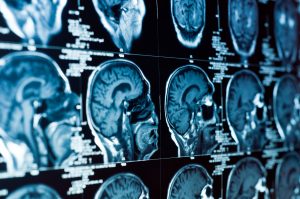
What are Some Brain disorders?
According to the Brain Injury Association of America (BIA) and the Centers for Disease Control and Prevention (CDC), traumatic brain injuries are one of the leading causes of permanent disabilities or death in infants and children. Brain damage can happen either from blunt force trauma to the infant’s head (less common, but possible with a forceps extraction injury), from a long labor where the brain is compressed in the birth canal for far too long, or, more likely, from a difficult labor that at one point results in the infant losing oxygen. If you feel your infant suffers from brain damage, it’s important to understand the symptoms, although some symptoms may not surface until several years after the brain injury.

What are the Symptoms of Infant Brain Damage?
Some of the first signs and symptoms of brain damage can be detected shortly after birth by looking at the infant’s appearance. Although not always present in all infants who suffer from brain damages, some of the common symptoms and signs shortly after birth include:
- Abnormally large forehead
- Abnormally-shaped spine
- Distorted facial features
- Unusually small heads (more prominent in smaller infants)
- Seizures
- Neck stiffness
- Difficulties in focusing the eyes
Infants with brain damage may also exhibit an abnormal temperament, with symptoms including:
- Troubles with sleeping while lying down
- Excessive crying
- Problems with feeding
- Excessively fussy for no apparent reason
Developmental Delays
Some symptoms of brain damage may not be evident until the child starts attempting to undergo developmental milestones. The symptoms of brain damage are calculated in a few different ways: cognitive, perceptual, physical, and behavioral or emotional.
Cognitive symptoms
Cognitive symptoms are usually identified as the child grows older and possibly misses normal developmental steps. The most common symptoms include difficulties with
- Attention and concentration
- Memory and processing information
- Processing language
- Controlling impulses
- Communication









